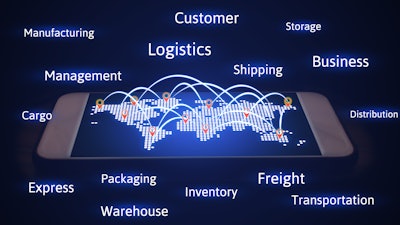
Business interruption (BI) ranks second in the Allianz Risk Barometer 2024, an annual survey which asks more than 3,000 risk management experts around the world to identify their top business challenges for the year ahead, behind the closely linked peril of cyber. With almost all companies reliant on supply chains for critical products and services, it is little surprise that business interruption and supply chain disruption remain at the forefront of risk. It is the extent of the disruption that becomes the focus point. Some sectors of industry operate with supply chains that have extensive geographic footprints.
The prominence of BI also reflects the volatile environment in which companies currently operate. Despite efforts to improve resilience, the need for efficiency means many companies still run with low levels of stock and just-in-time manufacturing, which results in little margin for errors or disruption.
More Resilient Supply Chains?
COVID-19, and the resulting disruption to supply chains, has been a wake-up call for companies. Compared with pre-pandemic times, many companies are now much better prepared for business interruption or supply chain events.
Before COVID-19, companies were generally reactive to events, but now they are much more aware of critical threats and the need to diversify and protect critical points. Awareness of business interruption and supply chain vulnerabilities makes a business better prepared and able to react in a smarter and more informed manner.
According to the Allianz Risk Barometer results, businesses are most likely to develop alternative suppliers (60 percent of responses) when taking action to de-risk supply chains, followed by improving business continuity management (42 percent) and identifying and remediating supply chain bottlenecks (37 percent).
Cybersecurity Concerns
Cyber incidents and natural catastrophes are the top two causes of BI feared most by companies, followed by fire, and machinery/equipment breakdown or failure. However, almost any peril can cause disruption. BI is closely related to many of the other top global risks in this year’s Allianz Risk Barometer, such as climate change (#7), political risks and violence (#8), skills shortages (#10), energy crisis (#11) and the impact of new technologies (#12) to name but a few.
The global risk landscape is constantly changing, with climate change, digitalization, and geopolitics. Some risks lie dormant, but a significant enough change in geopolitics or events such as extreme weather patterns can very quickly change the predominant risks.
The recent disruption in the Red Sea – a vital trade route between Europe and Asia – due to Houthi rebel attacks on vessels is the latest risk to hit supply chains. More than 400 container ships were diverted via the Cape of Good Hope around the southern tip of Africa between mid-December 2023 and the beginning of January 2024 alone as a result of the attacks, prolonging journeys and causing delays to the delivery of products.
That said, natural disasters and fire and explosion are notable for their potential to generate large BI losses and supply chain disruption. Severe flooding in Slovenia in August gave rise to one of the biggest supply chain events of 2023, causing production delays and parts shortages for European car manufacturers, while a fire at a major liquefied natural gas facility in the U.S. earlier this year is likely to result in one of the largest BI losses for the energy sector in recent times.
The Climate Change Challenge
BI related to climate change goes further than just physical damage from storms and floods. Extreme weather or climate events can have a widespread impact, causing economic hardship and political and social upheaval, as well as disrupting logistics and production. For example, a severe drought restricted transits through the Panama shipping canal in the last months of 2023, causing congestion and delays of up to two weeks.
Climate change is also having an indirect effect, as decarbonization creates new supply chains. Emerging supply chains linked to the energy transition have already been identified as geographically concentrated as they depend on elements which can only be found in a select number of regions in the world. Countries are looking to secure critical supplies of technology and rare earth elements required to power transition technology, like electric cars, and enable renewable energy sources like solar panels.
Political risks have the potential to cause disruption and are harder to mitigate. Geopolitical risks are of growing concern for businesses in emerging energy and technology supply chains, as well as high value sectors like technology and artificial intelligence. Producers of rare earth elements are often found in the most underdeveloped and politically volatile areas, as well as being exposed to environmental, social, and governance (ESG) risks like modern slavery, human rights, and deforestation.
In a fast-changing world, companies need to maintain regular audits of systems and to test their business continuity plans. There needs to be systems in place to manage change. If a company hasn’t implemented business continuity management (BCM), then they should carry out a business impact analysis and risk assessment. For those that have already embedded BCM into the business, it is vital they regularly check, update and test these plans, otherwise they won’t be able to react when the crisis starts.
To view the 2024 Allianz Risk Barometer, please click here.






















